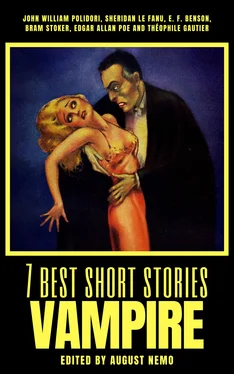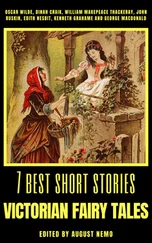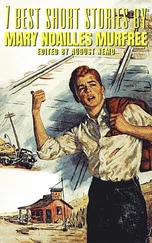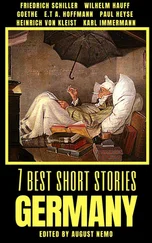A vampire is a being from folklore that subsists by feeding on the vital force (generally in the form of blood) of the living. In European folklore, vampires were undead beings that often visited loved ones and caused mischief or deaths in the neighborhoods they inhabited while they were alive. They wore shrouds and were often described as bloated and of ruddy or dark countenance, markedly different from today's gaunt, pale vampire which dates from the early 19th century.
Vampiric entities have been recorded in most cultures; the term vampire was popularised in Western Europe after reports of an 18th-century mass hysteria of a pre-existing folk belief in the Balkans and Eastern Europe that in some cases resulted in corpses being staked and people being accused of vampirism. Local variants in Eastern Europe were also known by different names, such as shtriga in Albania, vrykolakas in Greece and strigoi in Romania.
In modern times, the vampire is generally held to be a fictitious entity, although belief in similar vampiric creatures such as the chupacabra still persists in some cultures. Early folk belief in vampires has sometimes been ascribed to the ignorance of the body's process of decomposition after death and how people in pre-industrial societies tried to rationalise this, creating the figure of the vampire to explain the mysteries of death. Porphyria was linked with legends of vampirism in 1985 and received much media exposure, but has since been largely discredited.
The charismatic and sophisticated vampire of modern fiction was born in 1819 with the publication of "The Vampyre" by the English writer John Polidori; the story was highly successful and arguably the most influential vampire work of the early 19th century. Bram Stoker's 1897 novel Dracula is remembered as the quintessential vampire novel and provided the basis of the modern vampire legend, even though it was published after Joseph Sheridan Le Fanu's 1872 novel Carmilla. The success of this book spawned a distinctive vampire genre, still popular in the 21st century, with books, films, television shows, and video games. The vampire has since become a dominant figure in the horror genre.
John William Polidori
Extract of a Letter from Geneva.
“I breathe freely in the neighbourhood of this lake; the ground upon which I tread has been subdued from the earliest ages; the principal objects which immediately strike my eye, bring to my recollection scenes, in which man acted the hero and was the chief object of interest. Not to look back to earlier times of battles and sieges, here is the bust of Rousseau — here is a house with an inscription denoting that the Genevan philosopher first drew breath under its roof. A little out of the town is Ferney, the residence of Voltaire; where that wonderful, though certainly in many respects contemptible, character, received, like the hermits of old, the visits of pilgrims, not only from his own nation, but from the farthest boundaries of Europe. Here too is Bonnet’s abode, and, a few steps beyond, the house of that astonishing woman Madame de Stael: perhaps the first of her sex, who has really proved its often claimed equality with, the nobler man. We have before had women who have written interesting-novels and poems, in which their tact at observing drawing-room characters has availed them; but never since the days of Heloise have those faculties which arc peculiar to man, been developed as the possible inheritance of woman. Though even here, as in the case of Heloise, our sex have not been backward in alledging the existence of an Abeilard in the person of M. Schlegel as the inspirer of her works. But to proceed: upon the same side of the lake, Gibbon, Bonnivard, Bradshaw, and others mark, as it were, the stages for our progress; whilst upon the other side there is one house, built by Diodati, the friend of Milton, which has contained within its walls, for several months, that poet whom we have so often read together, and who — if human passions remain the same, and human feelings, like. chords, on being swept by nature’s impulses shall vibrate as before — will be placed by posterity in the first rank of our English Poets. You must have heard, or the Third Canto of Childe Harold will have informed you, that Lord Byron resided many months in this neighbourhood. I went with some friends a few days ago, after having seen Ferney, to view this mansion. I trod the floors with the same feelings of awe and respect as we did, together, those of Shakespeare’s dwelling at Stratford. I sat down in a chair of the saloon, and satisfied myself that I was resting on what he had made his constant scat. I found a servant there who had lived with him; she, however, gave me but little information. She pointed out his bed-chamber upon the same level as the saloon and dining-room, and informed me that he retired to rest at three, got up at two, and employed himself a long time over his toilette; that he never went to sleep without a pair of pistols and a dagger by his side, and that he never eat animal food. He apparently spent some part of every day upon the lake in an English boat. There is a balcony from the saloon which looks upon the lake and the mountain Jura; and I imagine, that it must have been hence, he contemplated the storm BO magnificently described in the Third Canto; for you have from here a most extensive view of all the points he has therein depicted. I can fancy him like the scathed pine, whilst all around was sunk to repose, still waking to observe, what gave but a weak image of the storms which had desolated his own breast.
The sky is changed! — and such a change; Oh, night!
And storm and darkness, ye are wond’rous strong,
Yet lovely in your strength, as is the light
Of a dark eye in woman! Far along
From peak to peak, the rattling crags among,
Leaps the lire thunder! Not from one lone cloud,
But every mountain now hath found a tongue,
And Jura answers thro’ her misty shroud,
Back to the joyous Alps who call to her aloud!
And this is in the night:— Most glorious night!
Thou wer’t not sent for slumber! let me be
A sharer in thy far and fierce delight, —
A portion of the tempest and of me!
How the lit lake shines a phosphoric sea,
And the big rain comet dancing to the earth!
And now again ’tis black, — and now the glee
Of the loud hills shakes with its mountain mirth,
As if they did rejoice o’er a young; earthquake’s birth,
Now where the swift Rhine cleaves his way between
Heights which appear, as lovers who have parted
In haste, whose mining depths so intervene,
That they can meet no more, tho’ broken hearted;
Tho’ in their souls which thus each other thwarted,
Love was the very root of the fond rage
Which blighted their life’s bloom, and then departed —
Itself expired, but leaving; them an age
Of years all winter — war within themselves to wage.
I went down to the little port, if I may use the expression, wherein his vessel used to lay, and conversed with the cottager, who had the care of it. You may smile, but I have my pleasure in thus helping my personification of the individual I admire, by attaining to the knowledge of those circumstances which were daily around him. I have made numerous enquiries in the town concerning him, but can learn nothing. He only went into society there once, when M. Pictet took him to the house of a lady to spend the evening. They say he is a very singular man, and seem to think him very uncivil. Amongst other things they relate, that having invited M. Pictet and Bonstetten to dinner, he went on the lake to Chillon, leaving a gentleman who travelled with him to receive them and make his apologies. Another evening, being invited to the house of Lady D—— H— — he promised to attend, but upon approaching the windows of her ladyship’s villa, and perceiving the room to be full of company, he set down his friend, desiring him to plead his excuse, and immediately returned home. This will serve as a contradiction to the report which yon tell me is current in England, of his having been avoided by his countrymen on the continent. The case happens to be directly the reverse, as he has been generally sought by them, though on most occasions, apparently without success. It is said, indeed, that upon paying his first visit at Coppet, following the servant who had announced his name, he was surprised to meet a lady carried oat fainting; but before he had been seated many minutes, the same lady, who had been so affected at the sound of his name, returned and conversed with him a considerable time — such is female curiosity and affectation! He visited Coppet frequently, and of course associated there with several of his countrymen, who evinced no reluctance to moot him whom his enemies alone would represent as au outcast.
Читать дальше

![Коллектив авторов - Best Short Stories [С англо-русским словарем]](/books/26635/kollektiv-avtorov-best-short-stories-s-anglo-thumb.webp)










